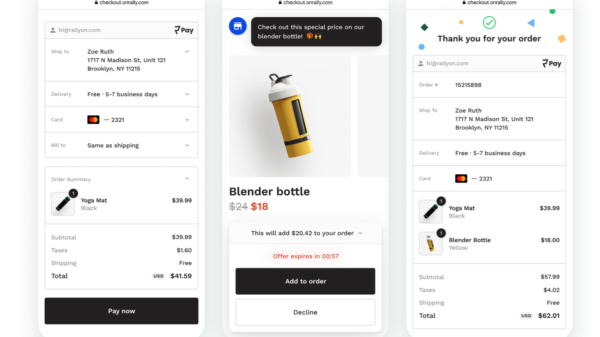On April 5th, Canadian Heritage Minister Pablo Rodriguez introduced Bill C-18, “An Act respecting online communications platforms that make news content available to persons in Canada”. The bill, dubbed the Online News Act, “regulates digital news intermediaries to enhance fairness in the Canadian digital news marketplace and contribute to its sustainability” by establishing “a framework through which digital news intermediary operators and news businesses may enter into agreements respecting news content that is made available by digital news intermediaries.” In a nutshell, this law forces digital news intermediaries, defined as any online communications platform “that makes news content produced by news outlets available to persons in Canada”, into negotiation with Canadian news companies to make those intermediaries pay to carry news content or any portion thereof (including audio, video, and seemingly mere hyperlinks) onto the intermediary’s platform. In its definitions section, the bill states that news content is made available if “(a) the news content, or any portion of it, is reproduced; or (b) access to the news content, or any portion of it, is facilitated by any means, including an index, aggregation or ranking of news content”.
This Canadian policy tracks closely with the recent Australian framework on news media. Like its Australian counterpart, which Project DisCo has extensively covered, the following will focus on four aspects of the Canadian legislation: procedural concerns, changes to the competitive landscape, trade harms, and copyright and related concerns.
First regarding procedure, the Online News Act requires the Canadian Radio-television and Telecommunications Commission (CRTC) to maintain a list of digital news intermediaries to whom this new enactment applies, giving certain intermediaries exemptions if they already have agreements with news businesses that satisfy certain vague criteria, such as providing for fair compensation, ensuring an “appropriate” portion of the money is used to support local, regional, and national content, and not allowing “corporate influence to undermine the freedom of expression and journalistic independence” (as phrased by its section 11). As was the case with the Australian law, the Canadian bill “authorizes the Governor in Council to make regulations respecting how the Commission is to interpret those criteria and setting out additional conditions with respect to the eligibility of a digital news intermediary for an exemption” (Summary-F). In other words, the CRTC and the government are given unilateral power to determine which companies may be exempted from this bill, and those who must follow it.
Second, the bill affects competition in this space, as it establishes a mandatory arbitration procedure to obtain a license to make news content in general available online even when merely facilitating access to news “by any means, including an index, aggregation or ranking of news content“. Section 21 of the proposed legislation states that an operator of a digital news intermediary “must participate in the bargaining process with the eligible news business or group of eligible news businesses that initiated it.” Section 19, on the other hand, establishes the steps of this bargaining process:
(1) The bargaining process consists of
(a) bargaining sessions;
(b) if the parties are unable, within a period that the Commission considers reasonable, to reach an agreement in the bargaining sessions, mediation sessions; and
(c) if the parties are unable, within a period that the Commission considers reasonable, to reach an agreement in the mediation sessions and at least one of the parties wishes to initiate arbitration, final offer arbitration.
As was alerted regarding the Australian legislation, this bill would provide a great boon to major Canadian publishers, as it would allow these news companies to create a “hardcore cartel,” which “runs counter to all international recommendations that have agreed to limit exemptions to cartels as exemptions generally represent a harmful policy option for consumers.” Forcing parties to either reach an agreement or have one arbitrated for them risks the market economy and may foster a more concentrated news sector.
Third, the bill poses trade conflicts as it is likely targeted at U.S. companies. As noted above, the Canadian government would have unilateral power to designate which intermediaries would be subject to the new rules. It is indicative from the motivation and legislative history of this proposal that the main targets are U.S. firms.
Upon introduction, the Ministry of Canadian Heritage cited the online advertising revenues of “two companies” as justification for the legislation. The Parliamentary Secretary to the Minister of Canadian Heritage, Chris Bittle, even stated during the House of Commons Debates on May 13th that:
The way Canadians get their news has changed a lot. Many of us get our news through Google or Facebook, which is okay. There is nothing wrong with that, but the problem is that digital media platforms do not compensate media when they use their content. Advertising dollars have left Canadian media. In 2020, online advertising revenues in Canada were close to $10 billion, with Meta and Google taking 80% of those revenues.
During the House of Commons Debates, on April 6th, MP Patricia Lattanzio asked what the Canadian government was doing to provide a counterbalance to the claim that “hundreds of local news outlets have had to close their doors for lack of revenue, while the web giants literally have a monopoly on advertising revenue”. In response, Prime Minister Justin Trudeau said:
The bill we have introduced will strengthen independent journalism across Canada. Web giants will compensate journalists when they use their content, while ensuring a transparent approach that protects the freedom of the press. This is essential for journalism, it is essential for all communities that rely on their local media, and most importantly, it is essential for our democracy.
Further, the standards provided by the law regarding to whom it would apply are not clear and could be used to target specific companies, doing far more harm than good. For instance, the bill’s section 84 states that the Governor in Council may make regulations “respecting the factors set out in section 6”. For reference, section 6 is the one that defines in which instances the law will be applied:
This Act applies in respect of a digital news intermediary if, having regard to the following factors, there is a significant bargaining power imbalance between its operator and news businesses:
(a) the size of the intermediary or the operator;
(b) whether the market for the intermediary gives the operator a strategic advantage over news businesses; and
(c) whether the intermediary occupies a prominent market position.
This leaves such regulation dangerously at the whims of the dominant political party, who can choose to benefit or hinder certain agents in the sector by changing the factors that determine the law’s application. Targeting new rules to only a subset of intermediaries that originate from the U.S., excluding domestic competitors, conflicts with Canada’s current international commitments (under the WTO agreements and the USMCA), which prohibit less favorable treatment to a digital product in the territory of another Party, and forbid arbitrary or unjustifiable discrimination or a disguised restriction on trade.
Fourth, the proposed legislation invokes serious concerns regarding international copyright commitments. As DisCo has long argued, the display of a short excerpt of a news report, which is among the broad types of “news content” that the Canadian government wants to charge Internet intermediaries for, may violate the Berne Convention’s mandatory quotation right. Berne Article 10(1) states that:
It shall be permissible to make quotations from a work which has already been lawfully made available to the public, provided that their making is compatible with fair practice, and their extent does not exceed that justified by the purpose, including quotations from newspaper articles and periodicals in the form of press summaries.
However, the Online News Act goes even further than previous ancillary rights frameworks by including text that blatantly disregards Canada’s international obligations by stating in section 24 that “for greater certainty, limitations and exceptions to copyright under the Copyright Act do not limit the scope of the bargaining process.” In other words, potentially legal uses of content that could be made by Internet intermediaries and their users, even something simple like sharing a hyperlink, are curbed by this new law. The public loses as a result, as they might suddenly see the possibility of accessing and sharing content on the Internet be greatly diminished.
Moreover, it is made clear by Canada’s international obligations that limitations and exceptions to copyright allow the limited usage of news content by third parties. Nevertheless, in order to yield to the whims of its news publishing industry, who wishes to have a bigger sway in how their content is shared online, Canada attempts to disregard intellectual property rights in a bill whose main purpose is to regulate the market in detriment to free competition. This is a blatant attempt to legislate around international copyright commitments because, ultimately, the Online News Act intends to “provide copyright-like protection and remedies to something [the way news is shared] that is conventionally viewed to be outside the scope of copyright” (as per Project DisCo’s explainer on ancillary rights). As a result, this undermines conventionally guaranteed rights of users and third-parties alike by removing the effectiveness of limitations and exceptions to copyright.
Fundamentally, this is a flawed law that, if passed , would greatly impair digital services and limit the ability of the general public in Canada to share news content on the Internet. It is also clear that this law is targeted at U.S. companies and does not have a clear set of rules that determine its application, which blatantly violates Canada’s competition and trade obligations. If Canada’s extensive trade obligations, meant to prevent such situations, do not deter it from passing laws like this one, other countries might follow-suit and endanger the integrity of the Internet ecosystem.
Some, if not all of society’s most useful innovations are the byproduct of competition. In fact, although it may sound counterintuitive, innovation often flourishes when an incumbent is threatened by a new entrant because the threat of losing users to the competition drives product improvement. The Internet and the products and companies it has enabled are no exception; companies need to constantly stay on their toes, as the next startup is ready to knock them down with a better product.















































